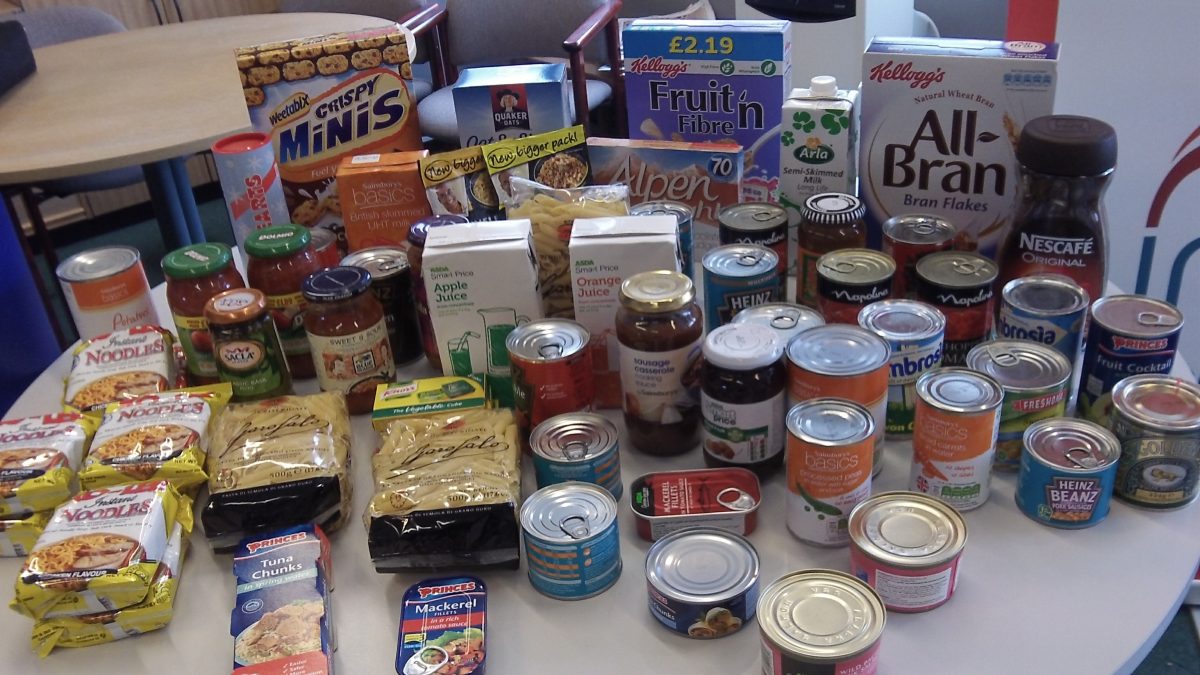Scandal of epic dimensions
If you read the statistic that Britain is the sixth richest country in the world, you’d assume that it’s a nation virtually free of certain social and economic ills, such as poverty and disease, which plague other countries with struggling economies.
The breadth of Britain’s resources, however, has done nothing to stop the rising juggernaut of hunger, most scandalously among almost half a million innocent children.
The Trussell Trust, an organisation running food banks for the past 15 years, revealed yesterday (April 21) that the number of people turning to them for help has skyrocketed under the coalition government’s watch.
Food poverty doesn’t happen in a vacuum – it’s no coincidence that the primary reasons the charity cited for the rise in food bank use are problems with benefits payments and chronically low wages.
The Trussell Trust’s latest figures are staggering in scale – in the last 12 months alone, 1,084,604 received supplies from the charity, which represents an almost 20 per cent increase since this time last year, with this figure including 400,000 children receiving at least three days’ supply from one of the Trust’s 445 food banks spread across the country.
Despite such high figures, Unite general secretary Len McCluskey argued that the scale of food poverty in the UK is not yet fully known and is likely to be much worse.
“As the Trussell Trust run only about a third of the nation’s food banks, this may not even be the full picture of food poverty in the UK,” he said.
Indeed, food bank use is not comprehensively tracked on a national scale, as is the case in some countries. Hundreds of other charities and churches run their own food banks up and down the country.
And as too many families struggle on low-pay in austerity blighted Britain, the Tory leadership, none of whom have experienced a day of hunger in their lives, have come up with endless excuses for the shameful rise in food banks, each pointing the finger to the victims of their own sinister ideologies.
Appalling comments
Dr Éoin Clarke highlighted some of these appalling comments made by Tories on food banks on his blog, including Michael Gove MP claiming food bank users were simply “unable to manage their finances”.
Most recently, work and pensions secretary Iain Duncan Smith, responding to the Trussell Trust report, said: “The best way to help families provide for themselves is cut taxes and to get more people into work.”
But getting more people into work – if that work is low paying and insecure, as are the vast majority of jobs created under the Tories’ watch – does nothing to shorten the queues forming outside the nation’s food banks.
Take, for example, one qualified teacher of two children, who must make use of food banks to make up for her and her husband’s low wages.
“I have an 18-month-old son and an eight-year-old stepson, I work part-time and my husband has an insecure agency contract,” she said. “There are times when he doesn’t get enough hours of work, and we really struggle to afford food and pay bills. The food bank meant we could put food on the table.”
One of the arguments propagated by Tories with their heads in the sand over Britain’s food poverty crisis is that the rising supply of food banks automatically brings with it rising demand.
It was an argument once offered up Tory minister Lord Freud who said: “There is actually no evidence as to whether the use of food banks is supply led or demand led… food from a food bank — the supply — is a free good, and by definition there is an almost infinite demand for a free good.”
Link to welfare reforms
The Trussell Trust, however, has rejected this hypothesis, repeatedly linking the rise in food bank use to welfare reform, including benefits sanctions, delays to payments and provisions like the bedroom tax, as well as stagnating incomes and rising living costs.
But even moving beyond the Trussell Trusts’ own findings, which Duncan Smith called “unverified”, once accusing the charity of “scaremongering”, a review commissioned by the work and pension secretary’s own government came to the same conclusion.
“We found no evidence to support the idea that increased food aid provision is driving demand,” researchers of the study noted in a press briefing. “All available evidence both in the UK and international points in the opposite direction.”
“Put simply, there is more need and informal food aid providers are trying to help,” they added.
And the British Medical Journal went one step further, making an explicit connection between austerity and food bank demand in a report published earlier this month.
The researchers said that their data show “that the local authorities with greater rates of sanctions and austerity are experiencing greater rates of people seeking emergency food assistance.”
McCluskey condemned the way in which the coalition government has remained stubbornly in denial food bank use and its root causes.
“How dare Iain Duncan Smith and David Cameron heartlessly brush off rising food bank use when all the evidence shows that their policies of benefit sanctions and austerity wages are why the hunger of so many now stalks our country,” he said.
“The UK is the sixth richest country on the planet so something has gone grotesquely wrong when so many people, in and out of work, have to turn to charity to feed their children.
“One million in food need in 2015 is a scandal of epic dimensions,” he added. “It is no longer enough to say that we need to make hunger history – we need to make the government that supercharged this need history once and for all.”
 Like
Like Follow
Follow


